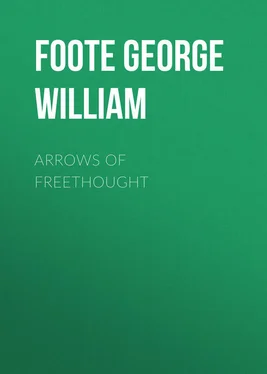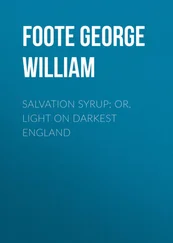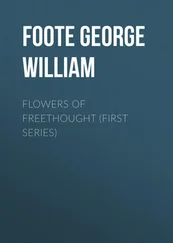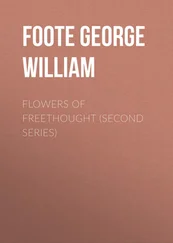George Foote - Arrows of Freethought
Здесь есть возможность читать онлайн «George Foote - Arrows of Freethought» — ознакомительный отрывок электронной книги совершенно бесплатно, а после прочтения отрывка купить полную версию. В некоторых случаях можно слушать аудио, скачать через торрент в формате fb2 и присутствует краткое содержание. Жанр: foreign_antique, foreign_prose, на английском языке. Описание произведения, (предисловие) а так же отзывы посетителей доступны на портале библиотеки ЛибКат.
- Название:Arrows of Freethought
- Автор:
- Жанр:
- Год:неизвестен
- ISBN:нет данных
- Рейтинг книги:5 / 5. Голосов: 1
-
Избранное:Добавить в избранное
- Отзывы:
-
Ваша оценка:
- 100
- 1
- 2
- 3
- 4
- 5
Arrows of Freethought: краткое содержание, описание и аннотация
Предлагаем к чтению аннотацию, описание, краткое содержание или предисловие (зависит от того, что написал сам автор книги «Arrows of Freethought»). Если вы не нашли необходимую информацию о книге — напишите в комментариях, мы постараемся отыскать её.
Arrows of Freethought — читать онлайн ознакомительный отрывок
Ниже представлен текст книги, разбитый по страницам. Система сохранения места последней прочитанной страницы, позволяет с удобством читать онлайн бесплатно книгу «Arrows of Freethought», без необходимости каждый раз заново искать на чём Вы остановились. Поставьте закладку, и сможете в любой момент перейти на страницу, на которой закончили чтение.
Интервал:
Закладка:
The gospel of Freethought teaches us to distinguish between the knowable and the unknowable. We cannot fathom the infinite "mystery of the universe" with our finite plummet, nor see aught behind the veil of death. Here is our appointed province:
"This world which is the world
Of all of us, and where in the end
We find our happiness or not at all."
Let us make the best of this world and take our chance of any other. If there is a heaven, we dare say it will hold all honest men. If it will not, those who go elsewhere will at least be in good company.
Our salvation is here and now. It is certain and not contingent. We need not die before we realise it. Ours is a gospel, and the only gospel, for this side of the grave. The promises of theology cannot be made good till after death; ours are all redeemable in this life.
We ask men to acknowledge realities and dismiss fictions. When you have sifted all the learned sermons ever preached, you will find very little good grain. Theology deals with dreams and phantasies, and gives no guidance to practical men. The whole truth of life may be summed up in a few words. Happiness is the only good, suffering the only evil, and selfishness the only sin. And the whole duty of man may be expressed in one sentence, slightly altered from Voltaire – Learn what is true in order to do what is right. If a man can tell you anything about these matters, listen to him; if not, turn a deaf ear, and let him preach to the wind.
The only noble things in this world are great hearts and great brains, There is no virtue in a starveling piety which turns all beauty into ugliness and shrivels up every natural affection. Let the heart beat high with courage and enterprise, and throb with warm passion. Let the brain be an active engine of thought, imagination and will. The gospel of sorrow has had its day, and the time has come for the gospel of gladness. Let us live out our lives to the full, radiating joy on all in our own circle, and diffusing happiness through the grander circle of humanity, until at last we retire from the banquet of life, as others have done before us, and sink in eternal repose.
FREETHOUGHT IN CURRENT LITERATURE
[A Paper read at the Annual Conference of the National Secular Society, in the Co-operative Hall, Bury, June 5th, 1881.]
When I was invited to read a paper at this Conference, I thought that, as editor of the Freethinker, I ought to say something about Freethonght. And as the deliberations of this Conference are mostly on practical matters, it occurred to me that I had better select a subject of less immediate though not of insignificant interest. So I resolved to address you on Freethonght in Current Literature.
I have said that this subject, if not practical and urgent, is assuredly not unimportant. The power of literature over men's minds cannot be estimated too highly. Science is a tremendous force, but its greatest influence is exercised over the human mind when it quits the merely practical task of ministering to our material desires, and seeks to mould our moral and spiritual conceptions of our position and destiny in the universe. To do this it must address us through the medium of literature. Art also is a great force, more especially in countries which have not been subjected, like ours, to the bondage of Puritanism. But art has hitherto appealed to a restricted circle, although that circle is rapidly widening in our own age. The greatest, most permanent, and most universal force is literature. Raphael and Michael Angelo have not influenced the world so profoundly as Shakespeare and Dante; while so many artistic achievements of antiquity are lost or half decayed, its literary masterpieces still survive with undiminished freshness and charm; and while the most eminent works even of contemporary artists are seen only occasionally by a few, the most eminent writings of the world's master minds may and do become a household possession to thousands who move in the humblest spheres of life.
In these cosmopolitan days the Freethinker and Humanitarian naturally looks beyond his own country into the great world, which is at present divided by national and other barriers, but which will in time become the home of one all-embracing family. And I confess that I was strongly tempted to trace the workings of the spirit of Freethought as far as I could in the general literature of Europe. But I soon recognised the necessity of limiting myself to the manifestations of that subtle and pervasive spirit in the current literature of our English tongue.
When the present century commenced Europe was stirred to the utter depths by that great French Revolution which marked a new epoch in the world's history. The revolutionary wave surged across the western world, and passed over England as well as other countries. Some thought the huge eclipse of social order which accompanied it the herald of approaching night, and others thought it the dawn of a new day; but none were indifferent. There was an intense excitement of radical passions and desires, a quickening of all the springs of life. This produced a blossoming of our literature such as had not been witnessed since the great Elizabethan age, and then, as before, Free-thought mixed with the vital sap. Of the long array of post-revolutionary names I select three – Thomas Paine, who represented the keen and restless common-sense of Freethought; William Godwin, who represented its calmer philosophy; and Shelley, who represented its lofty hopes and soaring aspirations. Godwin has almost faded into a name; Paine's great work is nearly done, for a deeper and more scientific scepticism has possessed itself of the field in which he labored; but Shelley has a message for generations yet unborn. He emerges as the supreme figure destined to immortality of fame. All great and noble and beautiful qualities cohere in him, the "poet of poets and purest of men." And he is ours. Byron, with all his splendid energy and terrible scorn, quailed before the supreme problems of life; but Shelley faced them with a courage all the greater because it was unconscious, and casting aside all superstitious dreams and illusory hopes, yearned prophetically towards the Future, when freedom, truth and love shall supersede all other trinities, and realise here on earth that Paradise which theologians have only promised in a world to come.
A Shelley cultus has grown up during recent years, and many of our most gifted writers reverently bow themselves before him. I have only to mention such names as Browning, Swinburne, and Rossetti to show the intellectual rank of his worshippers. Their number increases every year, and it is touching to witness the avidity with which they seize on all new facts relating to him, whether the record of some episode in his life, a reported conversation, or a scrap of writing from his hand.
From the Shelley and Byron period to the fresh revolutionary outburst of 1848 there was a lull in England as well as elsewhere. Several great political reforms were achieved in the interval. A Reform Bill was carried. Catholics and Jews were emancipated, and freedom and cheapness of the press were won by the untameable courage of men like Carlile, Hetherington, Lovett, and Watson. But quietude reigned in the higher spheres of literature. The age was eminently respectable, and it acclaimed the highly respectable Wordsworth as, the prophet divinely inspired to teach men how to rest and be thankful.
But during that interval of apathy and respectability, Science was slowly gathering strength and making conquests, in preparation for the time when she might plant her feet firmly on the solid ground she had won, and challenge Theology to mortal combat. Geology and Biology, in especial, were getting themselves ready to overthrow the fables of Genesis and destroy its doctrines of special creation. And one is glad to admit that they have completely succeeded at last. Professor Huxley declares that he is not acquainted with any man of science or properly instructed person who believes that Adam and Eve were the first parents of mankind, or that we have all descended from the eight persons who superintended that wonderful floating menagerie which survived a universal deluge less than five thousand years ago. And all the clergy can say in reply is that Professor Huxley is not endowed with that theological faculty which enables them to perceive in the language of Scripture a meaning which is quite undiscernible to the eyes of common sense.
Читать дальшеИнтервал:
Закладка:
Похожие книги на «Arrows of Freethought»
Представляем Вашему вниманию похожие книги на «Arrows of Freethought» списком для выбора. Мы отобрали схожую по названию и смыслу литературу в надежде предоставить читателям больше вариантов отыскать новые, интересные, ещё непрочитанные произведения.
Обсуждение, отзывы о книге «Arrows of Freethought» и просто собственные мнения читателей. Оставьте ваши комментарии, напишите, что Вы думаете о произведении, его смысле или главных героях. Укажите что конкретно понравилось, а что нет, и почему Вы так считаете.











